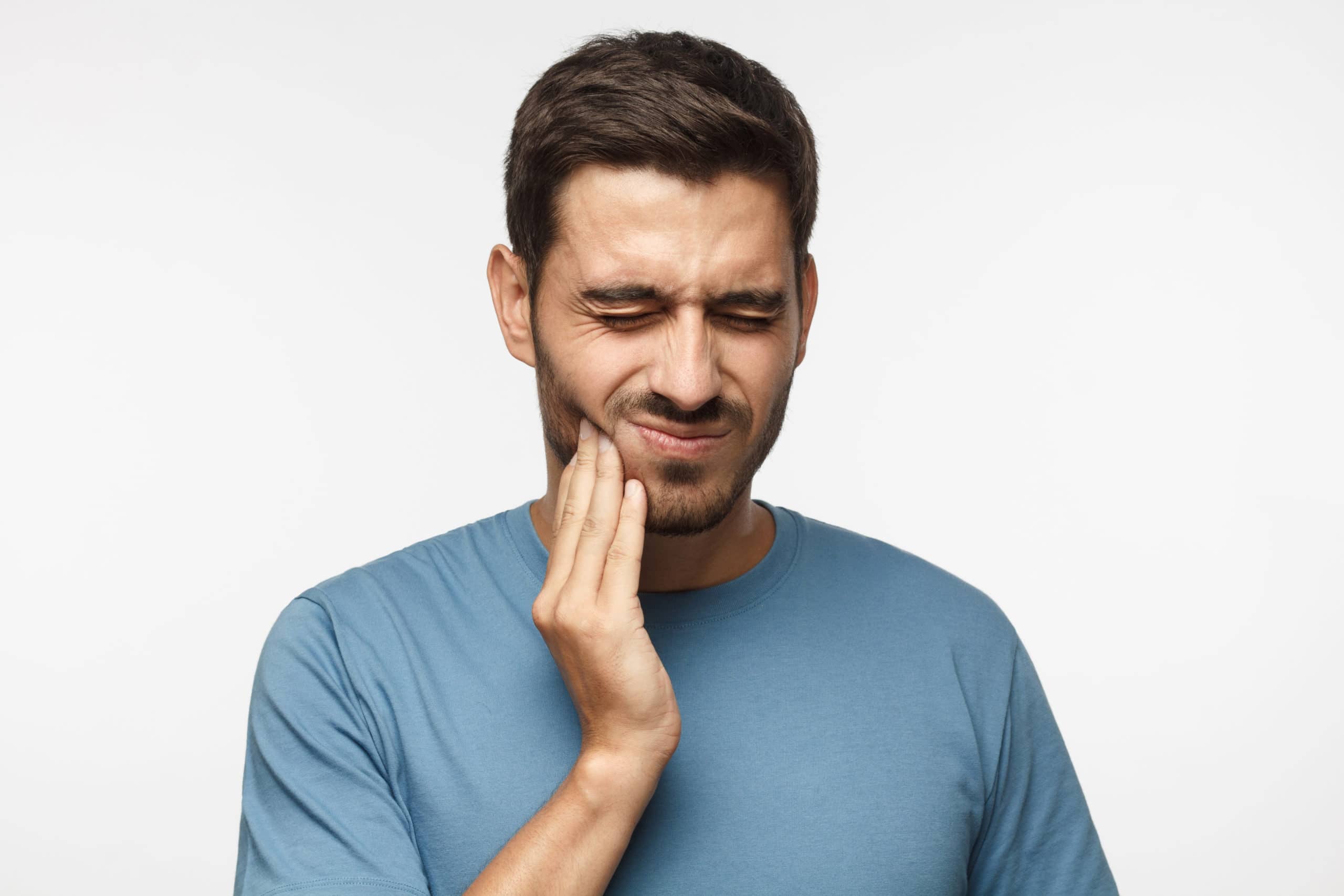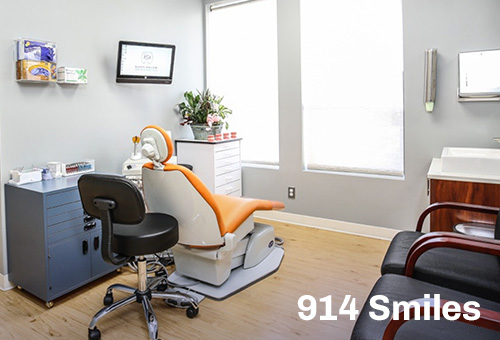
As fall allergy season mercifully comes to an end, you might notice you have less coughing, sneezing and congestion, but what about a decrease in tooth and jaw pain? Can allergies cause jaw pain and toothaches or is it a temporomandibular joint (TMJ) disorder?
Our Tarrytown pediatric dentist, Dr. Reshma Kumar, and our orthodontist, Dr. Rishi Kothari, have you covered. In this post, our smile experts will go over:
- Allergies and jaw pain
- Can allergies make TMJ worse?
- Is it allergies, a cavity or TMJ dysfunction?
Allergies and Jaw Pain
Can allergies cause jaw pain? Can allergies make your teeth hurt? Yes, allergies can cause jaw pain and toothaches. Here’s why:
Mouth breathing
When you have nasal congestion, you’re commonly forced to breathe through your mouth. Since congestion gets worse at night when you’re lying down, you may even breathe through your mouth for the entire eight hours you’re asleep. Holding your mouth open that long strains your TMJ and the supporting muscles and is one of the major culprits behind jaw pain with allergies and colds.
Sinus inflammation
The sinuses are hollow cavities that have openings so air can enter and mucus can drain. They’re found in your cheekbones, right above your upper jaw and teeth, as well as behind the bridge of your nose, behind your eyes and in your forehead.
According to the American College of Allergy, Asthma & Immunology, congestion from allergies can cause your sinus cavities to swell and become inflamed. If the sinus cavities in your cheeks are blocked, pain and pressure often radiates from your cheeks into your jaw and teeth. This is why allergies can make your teeth hurt and cause soreness in the upper jaw. Inflamed sinuses can also result in headaches and earaches.
Can allergies make your bottom teeth hurt? Sinus pressure in bottom teeth is less common. But, if you have so much pressure and swelling in your sinuses that it presses on the facial nerves, then the congestion from allergies can make your bottom teeth hurt, and the pain might even spread to your lower jaw.
Overuse
Your TMJ and chewing muscles work together to help you open and close your jaw. If you run a 5k you haven’t trained for, you’d expect some soreness in your joints and muscles. The same holds true for your jaw. Since hopefully allergy symptoms aren’t something you experience year-round, your muscles and TMJ are probably not primed for the constant coughing and sneezing that causes you to open your mouth. The overuse creates strain, tension and jaw pain.
Teeth grinding
If your child complains of a sore jaw in the morning and they have allergies, it could be tied to teeth grinding. Stress, lifestyle factors, a misaligned bite, and certain conditions and medications are often behind teeth grinding in people of all ages. However, allergies are an extra factor that can cause teeth grinding in kids. Teeth grinding, or bruxism, puts undue stress on the jaw and TMJ, resulting in jaw pain.
While researchers aren’t exactly sure why allergies increase teeth grinding in children, a study published in the American Journal of Orthodontics theorizes that sleep bruxism (teeth grinding and clenching that occurs during sleep) might be initiated reflexively by pressure in the tympanic cavities (an air-filled compartment in each ear) from swelling in the Eustachian tubes. The swelling in the tubes is due to the congestion from allergies.
Can Allergies Make TMJ Worse?
Unfortunately, yes, allergies can make TMJ pain worse. The term TMJ actually refers to the temporomandibular joint itself, while pain and dysfunction in the TMJ are technically called a TMJ disorder (TMJD or TMD).
Symptoms of a TMJ disorder include:
- Jaw and facial pain
- Limited mobility in the jaw
- A popping or clicking sound when opening and closing the mouth
- A jaw that gets locked in an open or closed position
- Difficulty chewing
- Headaches
- Earaches
- Tinnitus (ringing in the ears)
If you have sinus pressure in the teeth and jaw, or the jaw and TMJ are strained from mouth breathing or overuse due to coughing and sneezing, it will aggravate your already inflamed joints. This can cause your TMJ and jaw pain to worsen.
Is it Allergies, a Cavity or TMJ Dysfunction?
If you have mild jaw pain with allergies, a sinus infection or a cold, it’s most likely related to that and no treatment will be necessary.
For more persistent, severe jaw pain, or jaw pain accompanied by the other symptoms of a TMJ disorder we talked about above, it’s a good idea to have your jaw evaluated by a certified specialist in orthodontics like Dr. Kothari. He has the expertise to determine if your jaw pain is caused by allergies or TMJ problems. Treating a TMJ disorder in its early stages may prevent it from getting worse and allow you to get relief using less invasive treatment options.
Differentiating between allergies, a cavity or TMJ disorder is pretty straightforward. If allergies are causing sore teeth, multiple teeth will be affected and you’ll also be congested. The pain will go away when your sinuses are no longer inflamed.
A TMJ disorder will also usually cause pain in multiple teeth, instead of just one, and be accompanied by symptoms like limited mobility and jaw and facial pain.
With a cavity, on the other hand, while if it’s really deep, can lead to referred pain in the surrounding teeth, it usually causes a toothache in one tooth. Pain can be sharp or throbbing and it will continue even once your allergies or cold goes away. If you suspect your child has a cavity or you’re worried they’re grinding their teeth, allergies or not, Dr. Kumar can help get to the bottom of their discomfort.
Diagnosing Jaw Pain in Tarrytown
If your or your child’s teeth or jaw still hurt now that allergy season has come to a close or if the pain is severe and impacting daily life, schedule a visit at 914 Smiles. Our experts can diagnose the source of your or your little one’s pain and develop a personalized treatment plan to put you on the path to relief.



